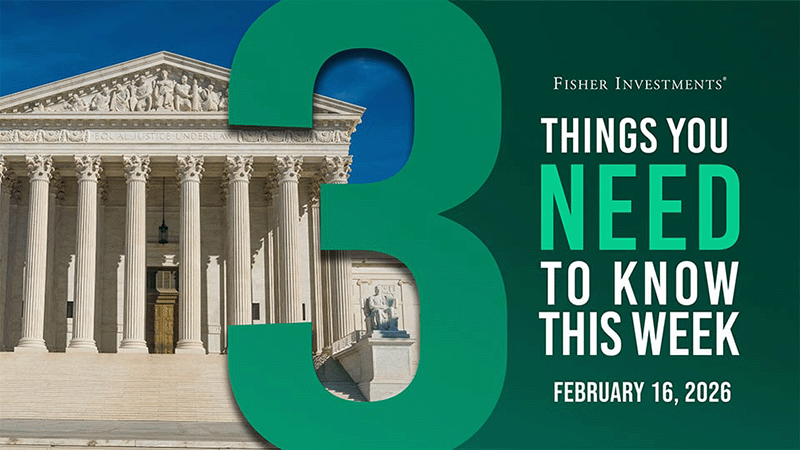Personal Wealth Management / Economics
An Earnings Sandwich
Tuesday’s news roundup includes a US earnings update sandwiched between a couple European updates. Bon appétit!
Greek negotiations, take two
Less than 24 hours after Greece’s election, New Democracy leader Antonis Samaras conceded his efforts to form a coalition. Fellow pro-bailout party PASOK tentatively agreed to partner, but all other party leaders refused, hoping they can form an anti-austerity coalition and renegotiate bailout terms with the EU/IMF. Tuesday, leftist Syriza’s leader, Alexis Tsipras, began that quest.
He has three days, but he may find himself as frustrated as Samaras. The anti-austerity parties have 151 seats—exactly what they need for a majority—but it’s tough to imagine all reaching a power-sharing agreement. Syriza and the Communists have decades of bad blood, far-right Golden Dawn may be too toxic to touch and centrist Independent Greeks have little-to-no ideological overlap with extremists on either end. A leftist coalition seems equally difficult, considering they’d need PASOK’s participation. Granted, stranger things have happened, but Tsipras could very well exhaust his options and pass the mandate to PASOK, which would pick up where Samaras left off.
If neither Syriza, PASOK nor President Karolos Papoulias can broker a power-sharing deal, Greece votes again—tentatively on June 17, 13 days before the EU/IMF’s deadline for €11.5 billion in budget cuts. Many are thus speculating a Greek exit from the euro if pro-bailout parties don’t win the second contest—and that’s indeed a possible outcome, but far from guaranteed. Many Greek voters seemingly turned to the fringe parties to “punish” New Democracy and PASOK for years of recession and new austerity plans—but will they make the same choice if the fringe parties prove feckless and disorganized? Or will they begrudgingly turn back to New Democracy and PASOK for the sake of moving forward and staying in the euro (which 77% of Greek voters favor)?
Plus, a fast Greek exit from the eurozone does no other members any favors. It’s possible the EU/IMF (fairly arbitrary) deadline becomes more of a guideline or there are other forms of bending to give Greece a bit more time. As has happened throughout this entire process.
The politicking continues, as ever.
Early earnings indications
With over 80% (406) of S&P 500 companies reporting Q1 earnings thus far, 2012 seems poised for a strong start—as we expected. 67% of those reporting have beaten expectations—just under the 68% average over the past four quarters and better than the 62% average rate since 1994.
Thus far, the earnings growth rate for the S&P 500 is 7.8% year over year—versus analyst expectations for growth of about 3% year over year. Granted, the companies yet to report could see decelerating or even contracting earnings, thereby bringing that number down some. But at this point, it seems companies have continued growing just fine. And while growth rates may fluctuate some, we expect overall growth to continue—which should augur well for the US economy’s continued relative resilience.
No Easy Road for FranÇois
FranÇois Hollande’s French presidential victory last weekend stirred concern among some folks. Recall: Hollande, a socialist, campaigned partly on a “soaking the rich” platform and making the Financial industry his adversary—proposing a 75% tax on incomes above €1 million a year (far higher than any other European top rates), a renegotiation of the eurozone’s fiscal compact treaty and potentially onerous regulations on French Financials.
But what Monsieur Hollande likely finds as he prepares to move into the Elysée Palace is the road to enacting these proposals is a lot rougher than he imagined—if he ever meant to travel it in the first place. In one sense, French politicians are no different than their US brethren—election campaigns are punctuated by stiff rhetoric and promises to enact sweeping changes—the better to capture voters’ hearts. But once elected, politicians typically moderate, abandoning or watering down grandiose plans—bowing to political pressure and consternation from the broader electorate.
In France’s case, there’s already anecdotal evidence the country’s high-earners may vote with their feet and leave for London’s calmer financial shores should Hollande’s 75% tax come to pass. As we’ve detailed before, the more you tax something, the less you get of it. And a 75% income haircut on France’s business people, entrepreneurs and high earners is likely England’s gain. (Already, there’s reportedly about 300,000 French living in the British capital.) Our guess is many of Hollande’s more onerous proposals may well die on the vine, or at least get greatly watered down. C’est la political vie.
If you would like to contact the editors responsible for this article, please message MarketMinder directly.
*The content contained in this article represents only the opinions and viewpoints of the Fisher Investments editorial staff.
Get a weekly roundup of our market insights
Sign up for our weekly e-mail newsletter.

You Imagine Your Future. We Help You Get There.
Are you ready to start your journey to a better financial future?

Where Might the Market Go Next?
Confidently tackle the market’s ups and downs with independent research and analysis that tells you where we think stocks are headed—and why.





